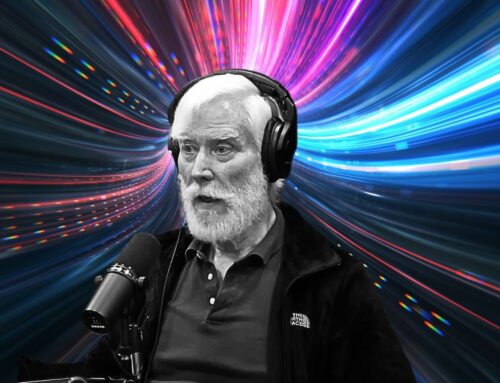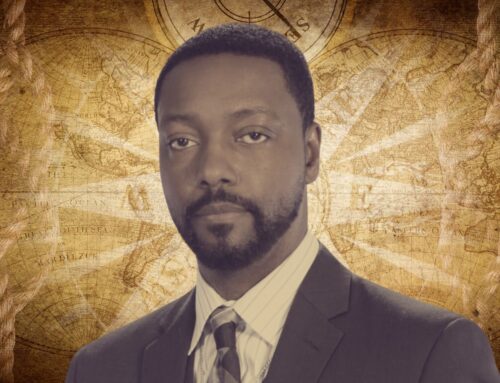Donald Hoffman, a cognitive scientist and professor at the University of California, Irvine, has proposed groundbreaking ideas about the nature of reality and perception. His work challenges traditional views, suggesting that our perceptions are not a direct reflection of the objective world but rather a user interface designed by evolution.
In this post, we’ll break down Hoffman’s key concepts, incorporating insights from his excellent interview with Tim Ferriss, to make them accessible and engaging.
The Interface Theory of Perception
Perception as an Interface
Hoffman’s main idea is that what we perceive is not the objective reality but a simplified user interface created by our brains. Imagine your computer desktop: the icons you see are not the actual files or programs but simplified representations that make it easier for you to interact with the system. Similarly, our sensory experiences are like icons on a desktop, providing a useful but simplified view of the underlying reality.
Background: This theory is rooted in evolutionary biology. According to Hoffman, our brains have evolved to prioritize fitness over accuracy. In other words, we perceive what is useful for our survival and reproduction, not what is necessarily true.
Evolution and Perception
Hoffman argues that evolution shapes our perceptions to enhance our chances of survival. Just as the icons on a computer screen hide the complex code and hardware underneath, our perceptions hide the true nature of reality, presenting instead a simplified and useful interface.
Example: Think about how we perceive color. Different wavelengths of light are interpreted by our brains as colors. This interpretation helps us make sense of the world quickly and effectively, even if it doesn’t reflect the exact nature of those wavelengths.
Fitness Payoffs vs. Truth
Hoffman explains that our sensory systems have evolved not to show us the truth but to maximize our chances of survival and reproduction. He uses the concept of “fitness payoffs” to illustrate this point. These are the benefits that an organism gains from certain behaviors and perceptions that increase its evolutionary fitness.
Insight: Through mathematical models and simulations, Hoffman and his colleagues have shown that the probability that our perceptions reflect true reality is virtually zero. Instead, our perceptions are shaped by what is most beneficial for our survival.
Conscious Agents
Reality as Interactions of Conscious Agents
Hoffman proposes that the fundamental nature of reality consists of “conscious agents” interacting with each other. These agents are the building blocks of everything we experience, and their interactions create the reality we perceive.
Metaphor: Imagine reality as a vast network of conversations. Each conscious agent is like a participant in these conversations, and the patterns of their interactions give rise to the world we experience.
The Mathematical Model
To support his theory, Hoffman has developed a mathematical model that describes how these conscious agents interact. This model aims to bridge the gap between subjective experiences and objective reality, providing a new framework for understanding consciousness.
Practical Implication: Hoffman’s model suggests that our experiences and perceptions are deeply intertwined with the interactions of conscious agents. This perspective can influence how we approach the study of consciousness and the mind.
Beyond Spacetime and Quantum Physics
Spacetime is Doomed
In his interview with Tim Ferriss, Hoffman discussed the idea that spacetime, as we understand it, is not the fundamental structure of reality. He believes that the true nature of reality lies beyond spacetime, and that our current scientific models need to be revised to reflect this.
Future Directions: This perspective opens up new possibilities for scientific exploration, including the study of quantum mechanics and the nature of consciousness. Hoffman’s work suggests that future theories might reveal a deeper, more complex structure underlying what we perceive as spacetime.
Panpsychism and QBism
Hoffman also touches on concepts like panpsychism, the idea that consciousness is a fundamental aspect of all matter, and QBism, an interpretation of quantum mechanics that emphasizes the role of the observer in shaping reality. These ideas further challenge the traditional materialist view of the universe.
Insight: By integrating these concepts, Hoffman’s work encourages us to rethink our assumptions about the nature of consciousness and its relationship to the physical world.
Challenges to Traditional Views
Questioning Objective Reality
Hoffman’s theories challenge the traditional view that our perceptions directly mirror an objective reality. Instead, he suggests that what we perceive is a convenient fiction, shaped by evolutionary pressures.
Implication: This idea has profound implications for science and philosophy. It suggests that we need to rethink our assumptions about the nature of reality and the limitations of our perceptions.
Beyond Materialism
Hoffman’s work also challenges the materialist view that everything can be explained in terms of physical matter. By proposing that consciousness is fundamental, he opens the door to new ways of understanding the universe.
Future Directions: Hoffman’s theories encourage further exploration into the nature of consciousness and its role in shaping reality. This could lead to new insights in fields ranging from neuroscience to artificial intelligence.
Conclusion
Donald Hoffman’s ideas offer a radical rethinking of reality and perception. By viewing our sensory experiences as a user interface shaped by evolution, Hoffman challenges us to reconsider what we know about the world and our place in it. Whether or not we agree with all of his conclusions, Hoffman’s work encourages us to think critically about the nature of reality and the limits of our perceptions.
By understanding and exploring Hoffman’s concepts, we can open ourselves to new possibilities and a deeper appreciation of the complexities of consciousness and existence.
✨ Start With Values
Receive $400 of bonus resources with any order of my new book,Start With Values (Penguin Random House).
Written by : Brad Hook
Brad Hook is a writer, podcaster, speaker and entrepreneur. He helps individuals and teams achieve sustainable high performance through inspiring workshops and a powerful suite of digital tools. Discover his new book, Start With Values (Penguin Random House), — available now!
Stay connected with Brad
BE NOTIFIED ABOUT EVENTS and receive the latest tools and tips first
We will never share your email with others.







